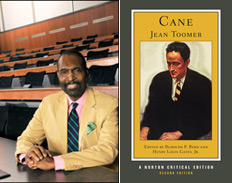Research
February 8, 2011
Racial revelations in Jean Toomer's 'Cane'

Modernist writer Jean Toomer was best known for his 1923 book "Cane," which included prose vignettes, poetry and dramatic dialogue focused on the African American experience. But, says Toomer scholar Rudolph P. Byrd, director of Emory's James Weldon Johnson Institute of Advanced Interdisciplinary Studies, "he didn't want to be known as a black writer."
Byrd and Harvard University's Henry Louis Gates Jr. are co-editors of a second edition of "Cane" (W. W. Norton, 2011). Included in the new edition are decades of correspondence, reviews and articles about the book, but also a discovery based on genealogical research: even though Toomer spent many years trying to pass as white, he was, in fact, African American. That finding is sure to shape the future of scholarship about "Cane" and Toomer.
Listen to Rudolph P. Byrd talk about the significance of Toomer's racial ambivalence.
Quick Links
File Options
Related Information
'Cane' in the headlines
"Scholars say chronicler of black life passed for white," New York Times, Dec. 26, 2010
"A new look at the life of Jean Toomer," NPR, Dec. 30, 2010
"Jean Toomer's conflicted racial identity," The Chronicle Review, Feb. 6, 2011
Book|Report Podcasts
Tune in as faculty authors tell how their new books are shaping scholarship. Explore more podcasts.
